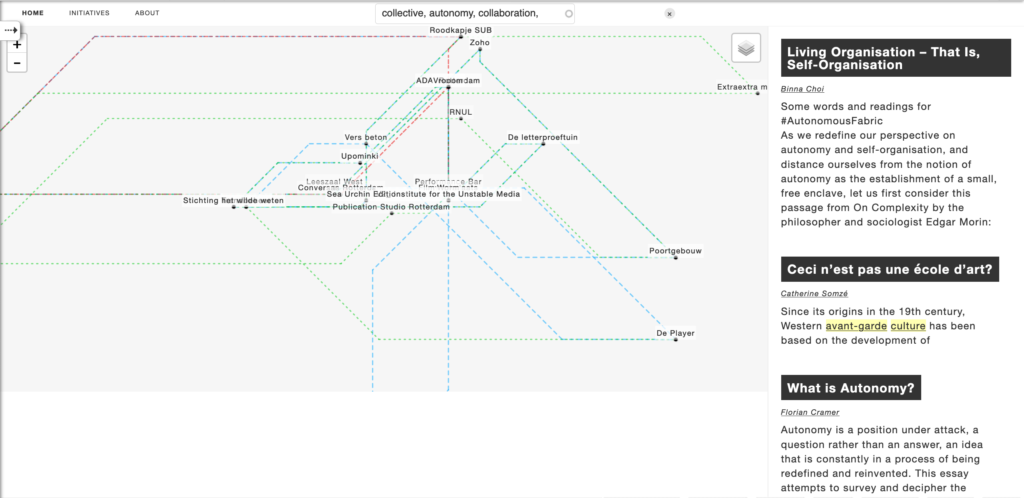duration: 2016-present | scale: klein project (<50k) | financing: SIA / KIEM en Pictoright
In The Autonomous Fabric research project, we have been mapping more than 100 self-organized spaces and initiatives run in Rotterdam by artists, designers and activists since 2016. The website allows to view and cluster initiatives according to overlapping themes and keywords that have been retrieved from their self-descriptions, see their current and past projects and public programs and get pointers to their addresses and websites. On top of that, the site also includes critical essays written by artists, researchers and theorists on shifting notion of “autonomy” in times where founding and running such initiatives often has become an artistic practice by itself.
The project is based on the observation that since the economic crisis of 2008, a growing number of contemporary artists/creatives has shifted from classical studio practice towards running experimental self-organized initiatives that operate in informal settings, largely without institutional support and that are often no longer recognizable as art projects. Breaking with the artist as a central figure, these projects rarely produce objects for the art or design market. Examples include experimental schools, restaurants, radio stations and libraries run as art projects. These initiatives engage with a public to which established cultural institutions have little or no access.
Since these growing forms of artistic practice are no longer based on established notions of artwork, authorship and ownership, how does the existing creative sector – including art schools – need to change in order to reflect and represent them? To which extent do they indicate a larger transformation of artistic autonomy towards collective organization? And, with Rotterdam as a case study, how are they related to processes of urban gentrification and to the place of marginalized groups in culture?

Keywords:
artist-run spaces
gentrification
intersectionality
